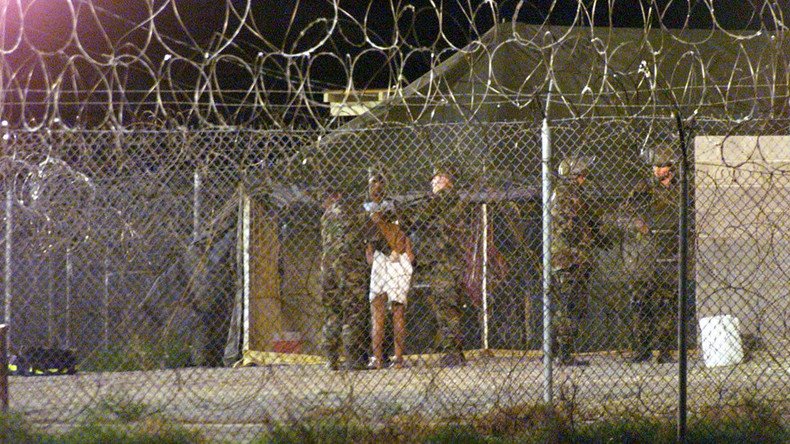CIA torture psychologists face court hearing over ‘war crimes’ by black site detainees

Former detainees tortured by the CIA at the agency’s notorious black sites are suing the psychologists hired to help design the controversial enhanced interrogation program, accusing them of enabling “war crimes” and “human experimentation.”
The psychologists, James Elmer Mitchell and John “Bruce” Jessen, will appear in federal court in Spokane, Washington on Friday. They will try to convince US District Court Senior Judge Justin L. Quackenbush that the case against them should be dismissed.
Although the two claim that they qualify for immunity because they were working for the government, the Justice Department has notably allowed the case to move forward up to this point. In the past, the government had blocked any and all efforts to hold the CIA accountable for the torture program, citing its concern that state secrets would be revealed.
"For the first time people who were involved in implementing and designing the CIA's torture program will be compelled to answer for their conduct in federal court," said Jameel Jaffer of the American Civil Liberties Union, who filed the lawsuit on behalf of the plaintiffs, to the Los Angeles Times. "That is literally unprecedented."
Filed back in October, the lawsuit contends that three former detainees held at CIA black sites – secret prisons located in undisclosed locations, often in foreign nations – were tortured and abused in violation of US and international law. The plaintiffs are Suleiman Abdullah Salim, Mohamed Ahmed Ben Soud, and Gul Rahman. Salim and Ben Soud are both still alive, but Rahman died while in CIA custody back in 2002.
According to the lawsuit, all three were subjected to a variety of abusive treatment, including solitary confinement; extreme darkness, cold, and noise; repeated beatings; starvation; water torture; sleep deprivation and more. Specifically, Rahman died from hypothermia after being exposed to extreme cold, dehydration, and lack of food, the complaint states.
Salim and Ben Soud, meanwhile, “suffered lasting psychological and physical damage from this torture.” The detainees are now seeking damages for their treatment.
#GitMo survivors sue psychologists who designed CIA torture program http://t.co/pT7rzVTNpG#Gitmopic.twitter.com/HBjrtbPZh5
— RT America (@RT_America) October 14, 2015
The lawsuit targets both Mitchell and Jessen “for their commission of torture, cruel, inhuman, and degrading treatment; nonconsensual human experimentation; and war crimes, all of which violate well-established norms of customary international law.”
Attorneys for Mitchel and Jessen say that since they were working for the government, Congress should be responsible for determining any punishment they may or may not deserve. They have also argued that they did not actually carry out any of the interrogations.
“They did not create or establish the CIA enhanced interrogation program,” defense attorney Christopher W Tompkins said in court documents, according to the Guardian. “They did not make decisions about Plaintiffs’ capture, treatment, confinement conditions, and interrogations; and they did not perform, supervise or control Plaintiffs’ interrogations.”
Additionally, the attorneys stated that they will probably have to reveal classified material or state secrets to defend their clients. If the Justice Department believes this to be true, it may invoke a state secrets privilege later in the case to block it from moving forward.
For its part, the ACLU believes all the information needed to move the case forward is now part of the public record, thanks to the so-called “torture report” that was released by the Senate in 2014. That report detailed the post-9/11 CIA torture program that was in effect between 2002 and 2008, as well as the disturbing tactics used to interrogate detainees. The report also stated that the torture program did not result in valuable intelligence, nor did it lead authorities to stop any terrorist attacks.













